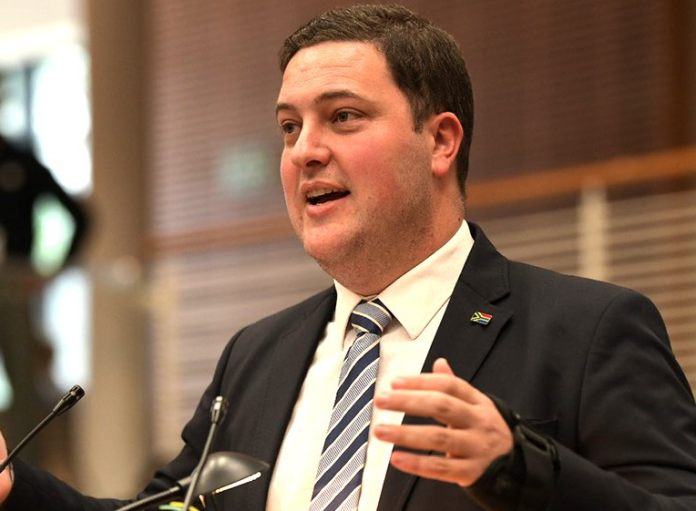Cape Town Mayor Geordin Hill-Lewis is set to table the City’s ambitious ‘Invested in Hope’ Budget for the 2025/26 financial year on Thursday, 27 March.
The budget features an unprecedented infrastructure investment of R39.7 billion over three years, surpassing the combined total of all three Gauteng metros.
Hill-Lewis says, notably, 75% of this spending will be directed toward benefiting lower-income households.
Major Boost in Metro Policing
The proposed budget includes the largest single-year expansion of metro policing, with over 500 new officers set to be deployed across Cape Town.
This is in addition to the 400 officers already introduced since the beginning of the current municipal term. The expansion aims to bolster safety in communities and strengthen law enforcement capabilities citywide.
Tariff Reforms to Ease Cost Burdens
A significant component of the budget is a suite of tariff restructuring reforms designed to provide relief to lower-income households.
Key measures include:
- Water and sanitation fixed charges will now be based on property value rather than connection size, reducing costs for lower-income residents.
- While Eskom’s municipal electricity tariff increase is set at 11.32%, Cape Town customers will see an increase of just 2% on average. This is achieved by discontinuing the 10% contribution to other service delivery costs embedded in electricity rates.
- The City will continue its special protection for Lifeline electricity customers. The threshold for subsidized electricity purchases was increased from 350 to 600 units per month in 2023, and customers using 600 units in a month will continue to pay roughly the same as they did three years ago.
- Lifeline customers will remain exempt from fixed charges, while those on the Domestic Tariff will contribute a proposed fixed monthly fee of R59.90 to sustain electricity services. Despite this, their overall increase will remain much lower at 5%, compared to Eskom’s 11.32% hike.
Maintaining the Country’s Lowest Property Rates
Cape Town’s property rates are set to remain the lowest among South Africa’s metros when measured using the rate-in-the-rand formula. Even with a planned 7.96% increase next year, the city’s property rates will still be lower than the current 2024 levels in all other metropolitan areas.
This increase, while slightly above inflation projections, will fund record infrastructure investments aimed at solidifying Cape Town’s vision as the ‘City of Hope for all.’
Sustainable Waste Management and City Cleaning Tariff
The budget also outlines a 7.36% annual increase in refuse removal fees to ensure sustainable waste management services for both formal and informal settlements in the rapidly growing metro.
From July, residents will also see a City-Wide Cleaning Tariff explicitly itemized on their bills. While this is not a new expense—previously covered through property rates—it will now be offset by the reduction in electricity costs allocated to other service delivery functions.
Mayor Hill-Lewis says the ‘Invested in Hope’ Budget signals a transformative step forward for Cape Town, combining financial prudence with targeted investments to enhance service delivery and improve the quality of life for residents.


